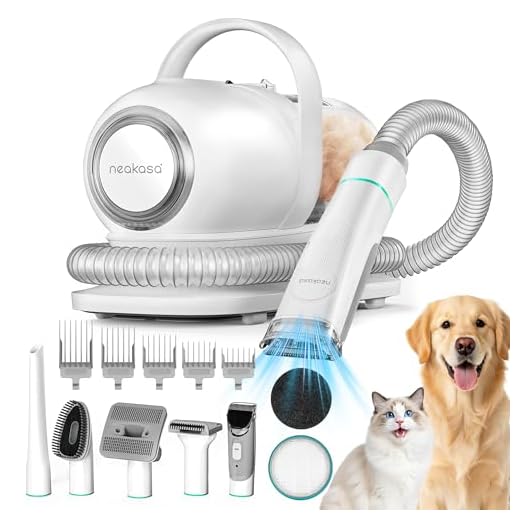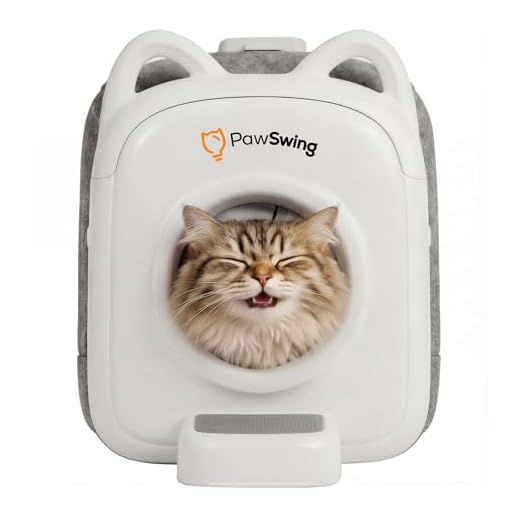



It’s simple: I find comfort in your scent and presence. When I groom your tresses, I’m bonding with you, showing affection, and establishing our connection. The act of licking brings me joy and a sense of security, as if I’m nurturing my favorite human.
My instinct drives me to engage in this behavior, reminiscent of how I would groom my siblings. This action helps to reinforce social bonds, making me feel closer to you. It’s a part of my nature, and it also provides a calming effect for both of us.
To enhance our moments together, consider embracing this ritual. Allow me to indulge in your locks, and enjoy the shared experience. This simple act fosters love and trust, creating a peaceful environment for our companionship.
Why My Feline Friend Enjoys Grooming My Locks
When my human sits down, I often take it as a cue to engage in some grooming rituals. This behavior isn’t just about affection; it’s rooted in instinct. In the wild, many of my cousins spend time cleaning each other, which strengthens social bonds. By grooming my human’s tresses, I express my love and reinforce our connection.
The texture of those strands fascinates me. The scent, unique to my human, adds to the experience. It’s an exploration of comfort and familiarity, reminiscent of the maternal care I received as a kitten.
If this playful habit becomes too frequent for your liking, gently redirect my attention to a toy or a cozy blanket. Offering an alternative can keep our interactions balanced and enjoyable for both of us.
Lastly, remember that this behavior is a form of communication. If I’m feeling anxious or need reassurance, I might turn to those luscious locks for comfort. Understanding this can help strengthen our bond and ensure I feel safe in my environment.
Understanding Feline Grooming Behavior
Grooming is a significant aspect of our lives, and it’s not just about staying clean. When I engage in this behavior, it reinforces social bonds and provides comfort. This practice originates from kittenhood, where mothers groom their young, establishing a sense of security and affection. As I grow, this instinct remains, extending to my human companions.
Additionally, grooming plays a role in stress relief. When I groom myself or others, it releases endorphins, creating a soothing effect. If I’m feeling anxious or uncertain, you might notice me engaging in this behavior more frequently. It’s my way of coping with the environment.
Another aspect to consider is scent marking. My saliva contains pheromones, and when I groom, I leave my scent on those I care about, including you. This action signifies that you’re part of my territory, a sign of love and ownership.
For a healthy environment, maintaining clean spaces is crucial. Choosing the best cat litter for cats with asthma helps create a safe and comfortable area, reducing stress and promoting well-being.
Understanding these behaviors enhances the bond we share and offers insights into our unique relationship. It’s a blend of affection, instinct, and communication.
The Role of Affection in Cat Hair Licking
When I groom my human’s locks, it’s a display of fondness and comfort. This behavior signifies a bond built on trust and love. Here’s what I’ve observed:
- Social Connection: Grooming activities are crucial in my social interactions. By engaging in this habit, I reinforce our relationship.
- Sense of Security: This action provides a calming effect for both of us, creating a shared sense of safety and well-being.
- Territorial Marking: My saliva carries my unique scent, which I leave behind as a way of claiming my human and solidifying our bond.
Engaging in this behavior helps me feel connected and expresses my affection. It’s a small yet significant part of our relationship that brings us closer together.
How Scent Plays a Part in Your Feline’s Actions
Understanding the importance of smell is key to interpreting my behavior. Our noses are finely tuned to detect a wide range of scents, which influence how we interact with our surroundings and those we care about.
When I engage in grooming activities, the scents from my human’s hair carry significant meaning. These aromas provide comfort and familiarity, reminding me of my bond with them. The unique combination of scents from shampoo, skin, and environment creates a sensory experience that is both calming and enriching.
The communication aspect is also vital. My actions of grooming or nuzzling serve to transfer my scent onto my human, marking them as part of my territory. This is a way of saying, “You’re mine!” and reinforces our connection and trust.
To better understand how scent affects behavior, consider the following table that outlines various scents and their effects:
| Scent Type | Effect on Behavior |
|---|---|
| Familiar Human Scent | Promotes relaxation and bonding |
| Catnip | Can induce playful behavior and excitement |
| Strange or New Scents | May cause curiosity or caution |
| Food Aroma | Increases interest and attention |
Recognizing these scent-related behaviors can enhance the relationship between us. By understanding what scents are appealing or calming, you can create a more harmonious environment that caters to my sensory preferences.
Identifying Stress-Related Grooming in Cats
When I notice my furry friends over-grooming, it raises a red flag. Excessive self-care often signals anxiety or discomfort. Look for signs like bald patches, skin irritations, or raw areas that indicate nervous grooming habits.
Observe behavior changes such as hiding, aggression, or excessive vocalization. These alterations can accompany grooming issues. If I see my pals acting differently, it may reflect underlying stress. Environmental factors, like loud noises or changes in routine, can contribute to their unease.
Providing a calm space is crucial. Cozy hiding spots with familiar scents can help reduce anxiety. Interactive toys and scratching posts also serve as distractions, alleviating stress. Encouraging playtime or quiet moments together can foster a sense of security.
Keep an eye on dietary habits as well. A shift in eating or drinking patterns might accompany grooming behavior. Offering fresh water and a balanced diet can support their overall well-being and reduce stress-related grooming.
If I notice persistent grooming despite changes, consulting a veterinarian is wise. They can rule out medical conditions and offer tailored advice for managing stress in my companions.
When to Be Concerned About Excessive Grooming
If frequent grooming becomes excessive, it’s important to observe for other signs of distress. Monitor for changes in behavior or health. Here are some specific indicators to watch for:
- Loss of appetite or weight changes
- Increased hiding or withdrawal from interaction
- Signs of skin irritation or bald patches
- Unusual vocalizations or aggression
- Changes in litter box habits
If these symptoms appear, consult a veterinarian for a proper diagnosis. They can help determine if anxiety, allergies, or other health issues are at play.
Maintaining a calm environment can alleviate some stressors. Providing enrichment activities such as toys or climbing structures will also help. Additionally, consider investing in a best energy efficient beko washing machine for easy cleaning of any messes from excessive grooming.
Being proactive can enhance overall well-being and happiness.
Encouraging Positive Interactions Without Hair Licking
To create enjoyable moments together, I suggest incorporating interactive play sessions into our routine. Use toys that mimic the movement of prey, like feather wands or laser pointers, to engage my instincts while strengthening our bond.
Offering Alternative Comforts
Providing a cozy spot with a soft blanket or a favorite scratching post can help satisfy my need for comfort and affection. This might redirect my attention from your lovely locks to my own cozy corner.
Establishing a Grooming Routine
Regular grooming sessions with a brush can replicate the soothing sensation of being groomed, which I naturally enjoy. This not only keeps my fur in great shape but also reinforces our connection without resorting to your hair.
FAQ:
Why does my cat lick my hair?
Cats often lick their owners’ hair as a sign of affection and comfort. This behavior mimics the grooming they do with other cats, which helps to strengthen social bonds. When your cat licks your hair, it may be expressing love and trust, treating you as part of its family. Additionally, the texture and scent of your hair might be appealing to your cat, making it a comforting activity.
Is it normal for my cat to lick my hair all the time?
While it’s typical for cats to groom themselves and their owners occasionally, excessive licking could indicate a few things. It might simply mean your cat enjoys your presence and finds comfort in grooming you. However, if the licking becomes obsessive, it could be a sign of anxiety or stress. Observing your cat’s overall behavior and looking for other signs of distress can help determine whether this habit is normal or if it requires attention.
How can I stop my cat from licking my hair if it bothers me?
If your cat’s hair licking is bothersome, there are several strategies you can try. First, gently redirect your cat’s attention to a toy or activity whenever it starts licking your hair. Establish a routine that includes playtime to help burn off excess energy. You can also create a comfortable space for your cat where it feels secure. If the behavior persists, it might be helpful to consult with a veterinarian or a pet behaviorist to explore underlying issues and find the best solution for both you and your cat.








